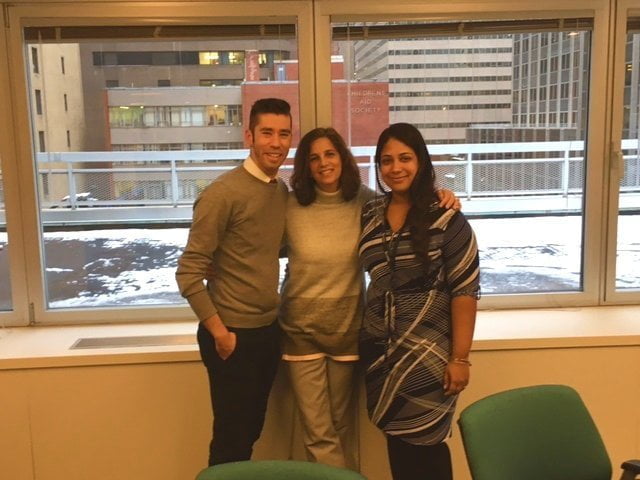Better Than Most is a regular feature of The Business of Giving examining the best places to work among social businesses and nonprofit organizations.
Transcript
Phoebe: Traditionally, we were pretty siloed. We’ve reorganized ourselves, as I said, to be thinking about this continuum to make sure that all of our staff understand their roles; what role they’re playing. I have referred to it as “differentiated responsibility but a shared accountability”. Whether you are a nurse in our clinic addressing a young person’s chronic asthma, you know that that’s going to get that child get back to school and be successful in school. If you are a case manager meeting a child who has just been removed from a very violent and traumatic situation, we want you not only thinking about safety and permanency for that child but their over-all well-being. How do we make sure that they’re being successful in school despite everything that’s going on? How can we bring all of our powers to bear to help this young child?

Denver Frederick and Phoebe Boyer
Jenny: Children’s Aid Society is an organization that’s over 160 years. We are committed to ensuring that there are no boundaries to the aspirations of young people. Each person here is committed to helping the young people to learn, to grow, and to lead independent, successful lives. And we do that by being connected to these young children every step of the way through childhood up to college age because we know that having a college education will ensure that they’re successful, and I am so proud to be a part of Children’s Aid.
Keyla: The greatest sense of purpose that I get from working here at Children’s Aid is really having an impact on children and families, but most importantly is having the experiences of actually meeting those children and families, having a parent say, “Thank you so much. I’m able to enroll my child in after school now,” or “It’s really made a difference. My child is now socializing with more children.” So, I think that really that doesn’t compare to anything else and I hold that very dear to my heart.
On a more personal note, I think with the theme of really being family-oriented and supportive, as a new mom, I think that it’s critical. I’ve felt that as much as I give myself to the children we serve, that I have the same amount of support for my son through supervisors and colleagues and I think that’s definitely something that is important to me. I feel supported, folks are always making sure that I’m OK. So, that work and life balance is definitely something that I cherish.

Antonio: Along with the lines of professional development that Robyn noted, something that I think has been a very real attempt at Children’s Aid to refine and practice on professional development is what it looks like when someone is on-board and in the fold of work. And so I think within each varied division, there are separate tracks of leadership and pathways that provide people opportunities to learn, to get certified, to get additional training, both in the work that they do and then also to get scholarships or support to more education for the work that they can continue to do. I’ve been lucky enough to research and be a part of a lot of different professional development workshops through Children’s Aid partnership with Columbia, NYU, the Aspen Institute and a host of other agencies.
Casper: For me, one of the biggest, I guess, joy for me is developing staff, creating opportunities for them, just giving them a chance to grow like it was done for me. I started straight out of college here in the agency and worked my way up. So for me, to open doors and train and develop staff to move on and give them that motivation to do better and find other avenues, that’s very, very important to me, just having staff being able to take it to the next level. So creating those opportunities for the staff is like really the biggest joy for me, to see them grow and develop.
Robyn: Jenny mentioned the I Create Awards and that’s just not something that she just made up. It is really the cornerstone of our values, of the organization. Our staff is introduced to the I Create values at orientation, and we develop a lot of our goals and organizational goals and personal goals in which we do our work and people know that from the time that they’re here and are evaluated on that in terms of their performance.
Dedicated, compassionate, not always fun because we do some very, very serious work. But I think the people that are here really gather and coalesce around the mission of the agency, and that’s what makes us come to work every day.


